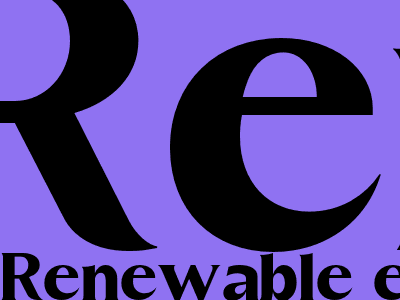
Renewable Energy: A Brighter Future
The Dawn of a Sustainable Era
In today's world, the quest for sustainable energy solutions has become paramount. Renewable energy sources, such as solar, wind, and hydropower, offer a promising path towards a greener future. These resources are inexhaustible, abundant, and produce minimal carbon emissions, making them essential components of combating climate change and ensuring energy security.
Harnessing Nature's Power
Solar energy, captured from the sun's rays, has emerged as a cost-effective and widely accessible source of electricity. Photovoltaic panels convert sunlight directly into electrical energy, providing a clean and sustainable alternative to fossil fuels. Similarly, wind energy utilizes turbines to convert the kinetic energy of wind into electrical power. Harnessing these renewable resources not only reduces greenhouse gas emissions but also provides a reliable and cost-competitive energy source.
The Potential of Hydropower
Hydropower plants utilize the force of moving water to generate electricity. By constructing dams or turbines along rivers or waterfalls, the energy of flowing water is captured and converted into electrical power. Hydropower is a clean and renewable source of energy, providing a significant contribution to the global energy mix. Countries such as Canada and Norway have successfully harnessed this resource, making it a cornerstone of their energy systems.
Embracing Geothermal Energy
Geothermal energy taps into the heat of the earth's core. By drilling deep into the earth's crust, hot water or steam can be extracted and used to generate electricity. Geothermal energy is a reliable and baseload source of energy, meaning it can provide a steady supply of power regardless of weather conditions. Countries like Iceland and the United States are actively utilizing geothermal energy, showcasing its potential as a clean and sustainable energy source.
Bioenergy: Biomass and Biofuels
Bioenergy refers to energy derived from organic matter, such as wood, plants, or animal waste. Biomass can be burned directly to generate heat or converted into biofuels, like ethanol and biodiesel. Biofuels offer a renewable alternative to fossil fuels, reducing greenhouse gas emissions and providing a sustainable source of transportation fuel. Countries like Brazil have made significant advancements in bioenergy production, demonstrating its potential as a viable energy solution.
The Road Ahead: Embracing Renewable Energy
The transition to renewable energy is crucial for creating a sustainable and prosperous future. By harnessing nature's power and embracing innovative technologies, we can reduce our dependence on fossil fuels, combat climate change, and ensure energy security for generations to come. Governments, industries, and individuals must work together to accelerate the adoption of renewable energy and create a brighter, cleaner future for our planet.